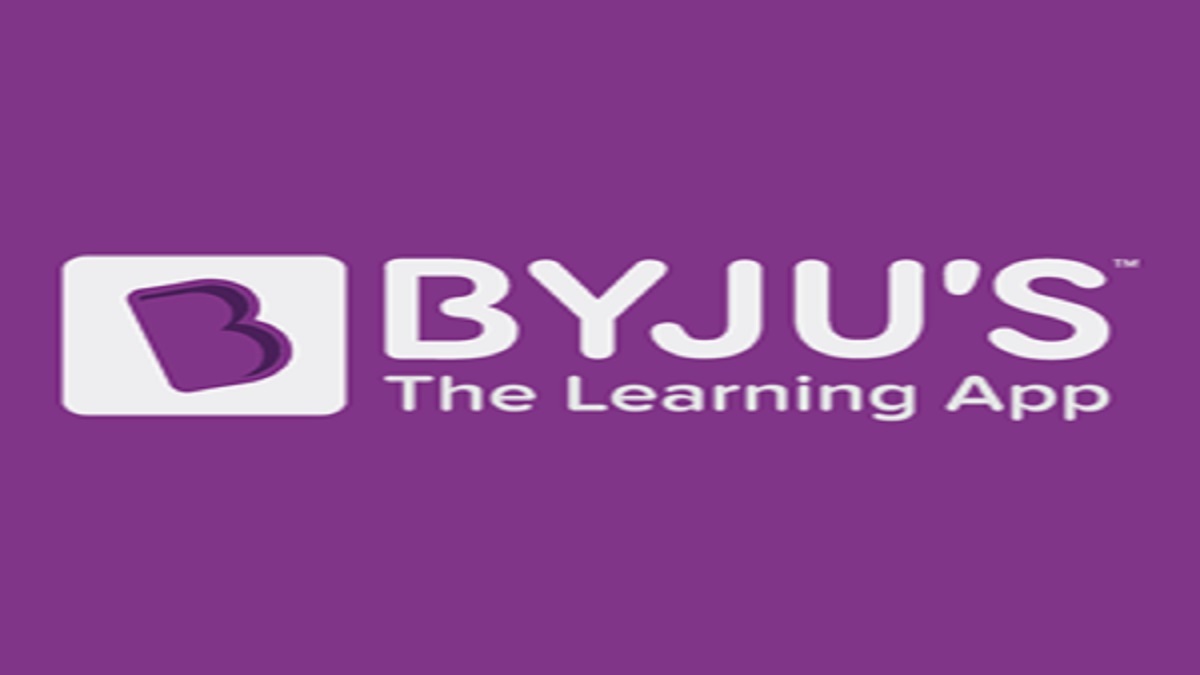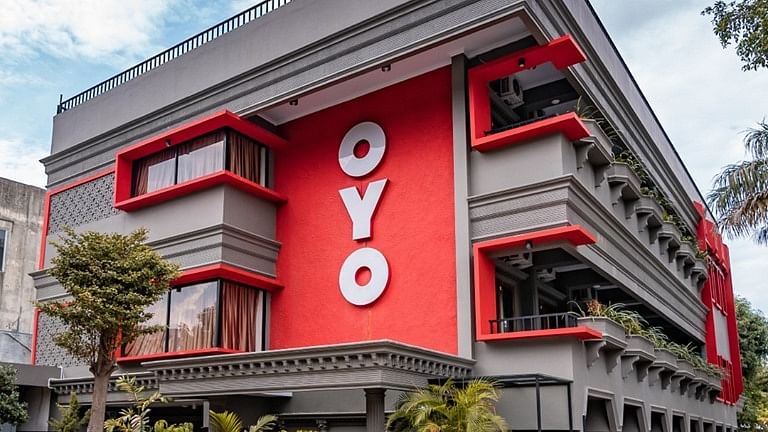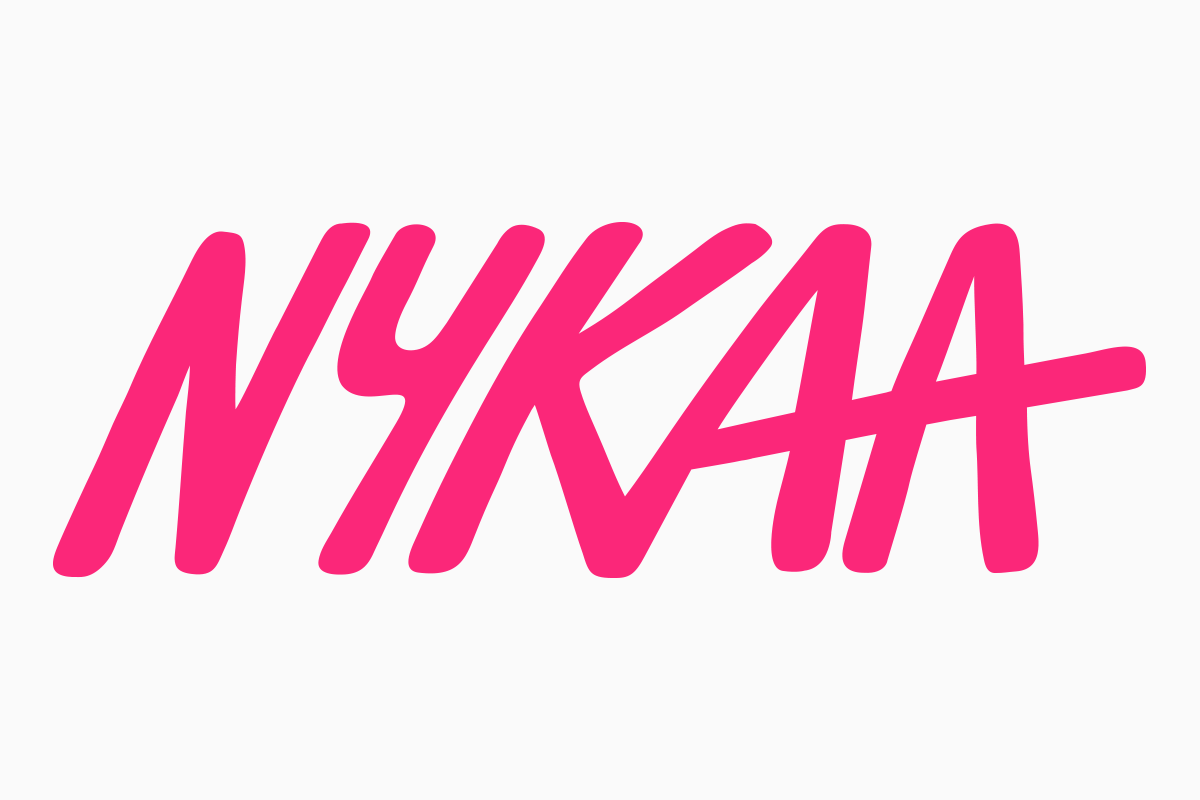Investigating unicorn startups in the view of increasing frauds and tax evasions: 23 unicorn startups that should be thoroughly investigated.

Investigating unicorn startups in the view of increasing frauds and tax evasions: 23 unicorns startups that should be thoroughly investigated.
Once upon a time, a successful startup would “go public,” offering securities to regular investors, maybe listing on a national Stock Exchange, and assuming a “public corporation” rights and responsibilities” under federal securities rules.
The world has changed. Today’s successful companies can grow to be pretty large without relying on public capital markets. A private firm valued at more than $1 billion was formerly so unusual that it earned the moniker “unicorn.” Over 800 businesses now meet the criteria.
Achieving unicorn status is a big thing for startups. Competitors, clients, and recruiters discern companies worth more than $1 billion to be more threatening than the fly-by-night startups they may be. As a result, startup founders have been seeking billion-dollar valuations from investors over the past three years, irrespective of the fact that their companies are worth that much by a normal business criterion.
Experts of law are concerned. According to a recent wave of academic papers, unicorns are especially prone to risky and illegal activities that harm investors, employees, consumers, and the whole society.
The institutional and regulatory factors that keep public entities in line do not apply to unicorns, so they are prone to risky and illegal activities that harm investors, employees, consumers, and society.
Naturally, the recommended answer is to use these forces against unicorns. Experts propose obligatory IPOs, greatly extended disclosure duties, regulatory measures to drastically improve secondary-market trading of unicorn shares, more importantly whistleblower rights for unicorn workers, and more SEC enforcement against giant private corporations.
Outside of the ivory tower, this standpoint is gaining support. One of the intellectual movement’s leaders was recently named director of the Securities and Exchange Commission’s Division of Corporation Finance. Significant changes may be on the way.
In a new work titled “Unicorniphobia”, (forthcoming in the Harvard Business Law Review), it is argued that unicorns are especially harmful and should be “tamed” through new securities rules. There are three big concerns.
First, forcing unicorns to become public companies may not assist and may instead worsen problems. According to the broad academic literature on “market myopia” or “stock-market short-termism,” Public Company Executives have especially dangerous incentives to take on excessive leverage and risk, underinvest in compliance, sacrifice product quality and safety, slash R&D and other forms of corporate investment, degrade the environment, and engage in accounting fraud and other forms of corporate misconduct, are included with other things.
Executive Compensation linked to short-term stock performance, pressure to meet quarterly earnings projections (aka “quarterly capitalism”), and the constant threat (and occasional reality) of a hedge fund activist attack is allegedly the dangerous incentives that produce this parade of horrible results. To the level that this literature is right, the proposed unicorn reforms would importantly compel corporations to switch from one set of ostensibly harmful incentives to another.
Second, proponents of new unicorn rules use rhetorical gimmicks. In their Publications, these supporters rely primarily on stories and Case studies of well-known “bad” unicorns, especially the examples of Uber and Theranos, to illustrate that unicorns represent distinct hazards.
Yet, it is explained in detail, and the authors make little or no attempts to show how their suggested reforms would have reduced the meaningful harm caused by these corporations. This is a highly dubious idea.
For example, Theranos, whose founder and CEO Elizabeth Holmes, is, at present, on trial for criminal fraud and faces a possible term of, up to 20 years, in federal prison, if convicted. Would the proposed securities regulatory improvements have made a difference in this situation?
Allegations that Holmes and others misled the media, physicians, patients, regulators, investors, business partners, and even their own Board of directors make it difficult to imagine they would have been more honest if they had made more securities disclosures.
Short sellers and Market Analysts had the ability and incentive to make these plays against Theranos indirectly by taking a temporary position in its public Company partners, like Walgreens, or a long position in its public company competitors, like LabCorp and Quest Diagnostics, according to the proposal to improve unicorn share trading to incentivize short sellers and Market Analysts to sniff out potential frauds.
They were unable to achieve so. Proposals to strengthen whistleblower rights and SEC enforcement in this region seem to have had little impact.
Finally, the suggested improvements can cause more harm than benefit. Today’s successful startups benefit not just their investors and management but their employees, customers, and the public. And they do so correctly because of the peculiarities of present legislation at present under review. Changing the system in the way these studies propose will jeopardize these gains, potentially causing more harm than good.
Consider Moderna, a corporation that recently provided an important societal benefit. Moderna was a mysterious, controversial, overhyped biotech unicorn before going public in December 2018, with no product on the market (or even in Phase 3 clinical tests), few scientific peer-reviewed Publications, a history of high-level scientific personnel turnover, a CEO who made over-the-top claims about the company’s potential, and a toxic work culture.
It’s possible that if these planned new securities restrictions had been in place during Moderna’s “corporate adolescence,” they would have severely hampered the company’s growth. Moderna probably not have been able to produce its very successful COVID-19 vaccine so quickly it did if it hadn’t been for a grant. As a result of our reaction to the coronavirus epidemic, it has benefitted.
We are learning from the recent incident of what happened with Infra.market. The Income-Tax Department has accused this unicorn startup group with an annual turnover of over 6,000 crores of fabricating fictitious transactions, massive unexplained Cash expenditures, and fraudulent entries of roughly Rs. 400 crores.
They may have highly powerful founder CEOs who are seeking, reckless, or messianic, much like other unicorns. They may have core investors unaware of the science behind their goods, are declined fundamental information, and urge the company to take risks to achieve stratospheric results.
Still, one or more of these businesses will probably be a valuable resource for our society in coping with the effects of climate change. When considering how securities regulation may be used to tackle these flaws, policymakers and scholars should not overlook the potential relevance of unicorn regulation.
Following is the list of unicorns startups that should be thoroughly investigated and assessed.
BYJUS

Since its inception in 2015, Byju’s The Learning App, named after its co-founder Byju Raveendran, has grown into an education giant. The firm had over 40 million users and 2.8 million paying members even before the coronavirus outbreak disrupted classroom learning. In the last year, those figures have more than doubled.
The company’s most recent investment round is expected to be worth $21 billion. It acquired six more education businesses in 2021 alone, including Indian coaching behemoth Aakash Educational Services for $950 million, Singapore-based Great Learning for $600 million, and Epic, an interactive digital reading platform for youngsters, for another $500 million.
Byju’s success stems from its ability to use technology to commodify learning. It provides a variety of e-learning programs for kids in elementary school through high school, and preparation for Competitive Examinations. Games, video tutorials, private coaching, and study aids are used to teach the courses.
However, seven former Byju’s workers claim that a harsh corporate culture built on profiling clients, hard-sell methods, and distant objectives, which critics claim implies pushing items to disadvantaged families who can’t afford them, is another reason for the company’s phenomenal development.
In 2021 An FIR was filed against the proprietor of BYJU, a major education technology business, for allegedly using false information in their UPSC curriculum, according to a Mumbai police officer.
The Aarey Colony police have charged BYJU’s owner Raveendran under IPC sections 120 (B) (criminal conspiracy) and section 69 (A) of the Information Technology Act, based on a complaint made by Crimeophobia. According to him, the complaint was filed on July 30, 2021. Several other cases have been filed against BYJUs.
Paytm

Paytm is a global financial technology business headquartered in India specializing in digital payment systems, e-commerce, and financial services. Its headquarters are in Noida.
For the IPO, the business set a share price of Rs 2,150 per equity share. The shares were listed at a 9% discount on the day of listing, at Rs 1,950. The shares completed 27 percent down on the first day, at Rs 1,564. The share price has now fallen to Rs. 524.
Paytm said in a filing that it has no information that probably have an influence on the price that it hasn’t displayed to the Stock Exchanges a day after BSE sought an explanation on the “major volatility” in its share price. It said that its business foundations are strong. Nonetheless, on Wednesday, the stock reached a fresh all-time low of Rs 520.
Since the Reserve Bank of India (RBI) barred Paytm Payments Bank from enrolling new subscribers, it has dropped 18 percent in the last five sessions. From its IPO price of Rs 2,150, the stock has lost over 75% of its value.
Due to apparent weaknesses in its technological infrastructure, the RBI has prohibited the firm from adding new clients, potentially jeopardizing the company’s small financing bank ambitions.
There are, at present, 43 lawsuits affecting the corporation, with 24 of them targeting its subsidiaries and one, involving a corporate director.
In relation to the corporation, there are 18 direct (13) and indirect tax (5) proceedings amounting to INR 37,299 Mn. A mention of litigation in the risk factors is a legal requirement for all entities planning to go public.
Swiggy

Swiggy is an online food ordering and delivery service in India. Swiggy was founded in July 2014 and is located in Bangalore. As of September 2021, it operates in 500 Indian cities.
Swiggy’s consolidated Revenue from operations fell 26.6 percent to 2,547 crores in the fiscal year ending March 2021, compared to the last year. Due to Covid-related limitations and lockdowns, net losses decreased by nearly 59 percent, to 1,616 crore in the last fiscal year.
The Karnataka High Court in 2021 ordered the tax department to reimburse money it had collected from Swiggy, even though an Investigation against the firm was still underway because the refund and inquiry method are separate and cannot be combined.
According to tax experts, this means that if a person has deposited money with the IRS, it cannot be used against them being an admission of guilt.
Bundl Technology, Swiggy’s operational e-commerce platform, has petitioned the court for a Rs 27.51 crore return from the indirect tax department.
Swiggy is being investigated by the Directorate General of Goods and Service Tax (Intelligence), the indirect tax department’s Investigation arm, for potential input tax credit fraud.
An enquiry is underway to see if the firm took advantage of an input tax credit without receiving services in real.
An input tax credit is basically taxes paid on raw materials under the GST structure (or input services). This can be used to reduce your GST burden in the future.
OYO

In the world of Airbnb, the growth of Oyo Hotels & Homes was nearly unexpected. Ritesh Agarwal, an Indian entrepreneur, founded the firm six years ago, at the age of 19, being a “virtual” hospitality brand that pooled affordable hotels and guesthouses around India, that could be searched and booked online.
Ritesh Agarwal, the firm’s founder, and CEO, has made an investment of $2 billion to buy back a percentage of the stock holdings of the company’s early investors, Lightspeed Venture Partners, and Sequoia India, and infuse additional equity capital into the company.
It’s worth noting that OYO has incurred losses in India and has moved profits to the Caymen Islands. Now RA hospitality, a Cayman-based Organization, is providing Cash in the form of loans to Ritesh Agrawal in order for him to raise his interest in his own company.
Yellow White Residency Hotel took Oyo’s subsidiary company, Oyo Hotels and Homes Private Limited (OHHPL), to the National Company Law Tribunal (NCLT) in April 2021, under bankruptcy and insolvency act, seeking payment of dues of Rs 16 lakh.
Dream 11

Dream11 has established itself as India’s leading online fantasy sports platform, despite several regulatory problems. The fantasy platform was launched in 2008 by a group of Indian entrepreneurs who identified the opportunity to bring the fantasy gaming sensation to India.
The legality of Dream11 was raised for the first time in 2017 when a criminal complaint was launched against the online fantasy sports platform in the Punjab and Haryana High Court. The petitioner argued that the nature of the activities available on the platform was purely a game of chance and clearly amounted to gambling, defined by the Public Gambling Act, 1867.
One of the main benefits of Dream11 is that it is free from the Public Gambling Act of 1867 since it is a ‘game of mere skill.’ Nothing in the Public Gambling Act of 1867 applies to game of mere skill, irrespective of where it is played. As a result, it does not constitute gambling under the Public Gambling Act of 1867, being the Punjab and Haryana High Court decided in a historic decision. Dream11, according to the Hon’ble High Court, is a lawful commercial activity protected by Article 19(1)(g) of the Indian Constitution.
In March 2021, the company raised $400 million at a $5 billion value in its last investment round.
Ola cabs

Ola, in the beginning, burnt venture capitalists’ money to give fat incentives to riders and gave fat discounts to riders. But over the years, the effects of the unstable business strategies employed by the car company seem to have had consequences. The final objective was probably to get the company listed so that VCs could make large returns from public money before the problems of this strategy show up.
The Indian Federation of App-based Transport Workers (IFAT) stated in 2021 that Ola Technologies Pvt. Ltd. and ANI Technologies Pvt. Ltd. are involved in a “massive” fraud. According to the employees’ union, India’s first ride-sharing firm, which began like a cab-aggregator, has effectively “eradicated small travel brokers” in nearly all major towns and cities, converting cab owners into driver-partners and “dictating” conditions in the taxi industry.
He went on to say that impoverished and uneducated drivers were lured in by the appealing Offer and signed the leasing agreement. According to IFAT, the issue here is that the daily installment is listed in the agreement by the term daily rental. According to reports, the corporation has produced a leasing agreement that is in its favor. “No motorist has the legal right to sue the corporation,” Shaik Salauddin remarked.
According to the IFAT statement, around 4000 drivers from the twin cities alone were victims of the fraud and paid millions of rupees to the entity in form of security deposit. The Ola company reportedly received approximately Rs. 120 crores from drivers in form of security deposit.
In 2018, Nyaya Bhoomi, a Non-Governmental Organization (NGO) has, seeked Rs 91,000 crore in redress from app-based taxi service providers for allegedly overcharging customers.
PhonePe
According to PhonePe, the company set a new monthly transaction record of 2 billion in October. In October, PhonePe, which is owned by Walmart and is part of the Flipkart Group, processed more than two billion transactions across all payment channels.
PhonePe barely reached a milestone of one billion monthly transactions in February.
PhonePe and BharatPe are now involved in two legal fights over the ‘Pe’ suffix. PhonePe dropped its injunction case in the Delhi High Court in 2021, opting to go forward with the trial against BharatPe over the latter’s usage of the ‘Pe’ suffix in its brand name.
Pine Labs
Three sources familiar with the talks said, Pine Labs, which is funded by Mastercard, has undertaken preliminary talks to purchase the Asia operations of insolvent German payments giant, Wirecard.
In 2020, the financial services company filed for bankruptcy after it was found out that $2 billion had disappeared from its balance sheet due to alleged accounting fraud.
Markus Braun, the CEO of Wirecard, was forced to leave being a result of the controversy, and he was arrested in an accounting fraud Investigation. Experts reported that he has now been released on bail.
Pine Labs has received $150 million from Alpha Wave Global in a mix of main and subsequent fundraising, valuing the IPO-bound digital payments and financial services provider at over $5 billion, according to several sources familiar with the matter.
The fintech business filed for a $500 million’ secret’ Initial Public Offering (IPO) with the US Securities and Exchange Commission in January, with a value of $6 billion to $7 billion. It raised $20 million from India’s top lender, State Bank of India, in the same month.
Meesho

In 2021, BananaIP Counsels, a Bengaluru-based Intellectual Property (IP) law company, has sent legal letters to social commerce startup Meesho and its logistics partner Shadowfax for fraudulent orders created on the former’s mobile app while urging Google to remove Meesho from the Play Store.
Meesho and Shadowfax have been accused of ‘defrauding, scamming, and abusing customers on a wide scale,’ as well as ‘using unfair trade and fraudulent methods, which can lead to legal and criminal responsibility.’
In FY21, Meesho generated an income of INR 792.8 crore through sales, up 2.5 times from INR 306.9 crore in FY20.
In FY21, it spent INR 1,337.3 crores, up from INR 655.3 crores in FY20.
In FY21, the company reported a total loss after tax, of INR 498.6 crore, up 62.5 percent from INR 306.6 crore in FY20.
CRED
The dividends from CRED’s Employee Stock Ownership Plan (ESOP) more than doubled to Rs 44 crore in the year, up from Rs 22 crore the last year.
CRED’s losses increased by 45 percent year over year to Rs 524 crore for the quarter ended March 31, 2021, from Rs 360 crore the last year. After raising more than $450 million in 2021, the platform was able to do so.
Revenues, on the other hand, increased by almost 400 percent from Rs 18.16 crore in FY20 to Rs 95.53 crore in FY21. Total operating revenue increased to Rs 88 crore in FY21 from Rs 52 lakh in FY20.
Sharechat
Startup for social media in the vernacular After TikTok and other Chinese apps were banned in the nation in 2020, ShareChat entered the short video fight with the Moj app. The business, which has collected $1.177 billion in capital and was valued at $3.7 billion in its most recent round of fundraising, purchased short video software MX TakaTak for $700 million earlier this month.
Freshworks
Freshworks, unlike legacy software, creates technology that is user-friendly, making it simple for IT, customer care, sales, marketing, and HR to fulfill their jobs and please their consumers. Freshworks’ SaaS is used by over 50,000 enterprises to improve customer experience (CX, CRM) and employee experience (ITSM, HRSM).
In 2021, In an ongoing legal battle between Software-as-a-Service (SaaS) providers Zoho and Freshworks, a US court had requested judicial help from the Madras High Court.
The proposal aims to allow cross-examination and evidence collecting from a former Freshworks employee who has been accused by Chennai-based Zoho of misappropriating trade secrets and getting unauthorized access to its customer information while working for a cross-town competitor.
Following up on a pre complaint filed in March, Zoho filed a new lawsuit against Freshworks in November 2020, alleging it accessed its database without authorization and acquired information through one of its workers.
BharatPe
It was disclosed that Alvarez & Marsal (A&M) had identified evidence of fraud at BharatPe in a preliminary assessment. Madhuri Jain, the company’s controller and wife of co-founder Ashneer Grover, has written to A&M, stating that she is considering legal action being a result of the leaked article.
BharatPe was funneling money through a series of phoney HR consultancy entities that were all related to one another. Many employees who were reportedly employed through these companies were interrogated. However, they denied that any consulting firm was engaged in the hiring process.
The leaked research disclosed that some of the merchants with whom the company dealt were wholly phoney, and their values were exaggerated. BharatPe was found out to be fabricating merchants for the second time. In 2021, the Directorate General of GST Intelligence (DGGI) found out some non-existent suppliers for the first time. In October, the DGGI launched a search operation at the company’s headquarters. The corporation eventually agreed to pay the fines and penalties.
Snapdeal
In 2021 Online marketplace Snapdeal has filed its draft red herring prospectus (DRHP) with the country’s markets regulator Sebi (Securities and Exchange Board of India) to raise Rs 1,250 crore through the issuance of new shares.
Snapdeal’s existing investors, including SoftBank, Foxconn, Sequoia Capital, and The Ontario Teachers’ Pension Plan Board, are expected to sell portions of 30769600 shares of their holdings in the company being a part of the IPO.
Snapdeal wants to use Rs 900 crore from the IPO receipts to fuel its organic development objectives, according to the company.
Mobile Premier League
The real-money gaming site MPL has risen by 2,000 percent in gross merchandise value in the months following the Chess Mahayudh. It isn’t just MPL that is flourishing; the real-money gaming sector — where you play games online for real money — is included.
However, the gaming industry now has an instrument at its disposal, one that they are particularly cautious about discussing.
It’s your information: when you like to play, who you lose to and who you win against, how much money you spend, which tables you like, and how you react to changes in gaming. When used correctly, this data has the ability to turn a potentially addictive product into one that is impossible to refuse.
Urban company
In 2021, With over a hundred women beauticians protesting claimed “unfair labor conditions,” India’s largest home services marketplace, Urban company, has found itself embroiled in a scandal, causing the company to instantly pledge key programs to boost the earnings of its partners.
Several beauty partners have stated that they will not accept orders from clients in protest of the company’s claimed excessive commissions and unsafe working conditions. Over the weekend, dozens of beauticians resorted to social media to protest “unfair working conditions,” including late-night hours.
Bigbasket
Bigbasket, an online grocery retailer, announced the opening of its new technology-driven ‘Fresho’ shop in Bengaluru on November 24, 2021, marking its first foray into the offline retail market.
In a news statement, the firm, which was acquired by Tata Digital in May, stated that it “aims to attract the next 500 million people who have not purchased food online before.” The launch is part of Bigbasket’s strategy to create 200 physical stores in India by 2023, with the main aim of increasing to 800 by 2026.
Abhinay Choudhari, the co-founder of online grocery business Bigbasket, purchased a 9716 sq ft plot in Epsilon, a prestigious Bengaluru area, for Rs 12.25 crore during the second wave of COVID-19, according to registration data seen by Zapkey.com.
Coin switch
DGGI Raids on Crypto Exchanges: Since last week, the Directorate General of GST Intelligence, or DGGI, has been conducting raids on cryptocurrency exchanges around the nation. This is because, according to the central organization, bitcoin exchanges have allegedly dodged GST worth billions of dollars.
This happened only days after the DGGI shut down WazirX, India’s largest bitcoin exchange. The crypto businesses have been scrutinized at a time when India is preparing a regulatory framework to govern how digital tokens operate in the nation.
“Around half, a dozen Offices of Cryptocurrency Service Providers have been investigated, and DGGI has identified substantial Goods and Service Tax (GST) evasion,” ANI said, citing sources.
Customers and merchants can trade cryptocurrency coins like Bitcoin, Ethereum, Dogecoin, and others using cryptocurrency wallets or exchange platforms. CoinSwitch Kuber, CoinDCX, and Bitcipher Labs were included in the platforms searched on January 1, according to ANI.
Nykaa

Nykaa’s parent firm, FSN E-Commerce Ventures, rose upto 4.6 percent on February 23 when the business officially concluded its outstanding dispute with L’Oreal.
At 1:40 pm on the BSE, the stock was trading at Rs 1,386.55, up 4.09 percent, with a market capitalization of Rs 65,705 crore.
On February 22, the firm announced that the legal dispute with L’Oreal SA had been resolved. “On February 21, the firm gained certified authentic copy of the Delhi High Court judgment dated January 21, 2022.”
L’Oreal SA filed a lawsuit against FSN E-Commerce Ventures and Nykaa E-Retail in November 2019, alleging copyright infringement and passing-off with respect to its trademark ‘Maybelline’ and the trade dress and color combination of its product ‘Maybelline New Lasting Drama Gel Liner.’
Nykaa filed an appeal with the Delhi High Court against an ex-parte ruling issued by the Delhi District Court. Both companies have agreed to a settlement, which has been authorized by both the District Court and the Delhi High Court.
CredAvenue
CredAvenue, a debt marketplace, said on Monday that it had purchased a 75.1 percent share in Spocto, a digital collections startup, to extend its product offerings.
CredAvenue will benefit from the purchase by adding digital collection options for lenders, and reducing risk and fraud on its platform. It will aid in improving collecting efficiency, according to the business.
Shopclues
Aggarwal, the founder of eCommerce giant ShopClues, has filed an FIR IN 2017, charging forgery and cheating against the marketplace’s co-founders, including his estranged wife and chief business officer Radhika Ghai Aggarwal and CEO Sanjay Sethi.
Aggarwal, the former creator of ShopClues, which was sold to Singapore’s Qoo10 last year, was accused by the DOJ and sued by the SEC in July 2013 for insider trading while working like a Wall Street analyst in 2009. The US Securities and Exchange Commission (SEC) has struck a legal settlement with Aggarwal in the same issue, according to Droom. In 2011, he established ShopClues, and in 2014, Droom.
CoinDX
It promises to be India’s safest crypto exchange, with a mission to give more than a crore to Indian crypto investors with safe, secure, and simple access to digital assets.
After a Series C funding round sponsored by former Facebook co-founder Eduardo Saverin’s B Capital and other investors, the firm became India’s first crypto unicorn.
Mama Earth

Mamaearth’s direct-to-consumer (D2C) personal care business will become profitable in the financial year 2021, according to Varun Alagh, the company’s founder and CEO.
Mamaearth became a unicorn this week after raising $52 million from its parent company, Honasa Consumer Private Limited, at a valuation of $1.2 billion.
A unicorn is a company worth one billion dollars or more, according to startup jargon.
Mamaearth’s income nearly quadrupled to 480 crores in the last financial year, according to Varun (FY20). Mamaearth reached Rs 300 crores in sales, two to three months before the end of FY2021, according to Kanwaljit Singh of Fireside Ventures, one of the company’s investors.
Due to a variety of techniques inherent in startup governance, finance, and valuation, startup businesses pose a relatively unexplored geyser of potentially fraudulent conduct, for much of the investing public. In the context of startup corporate governance, it is important to understand the fundraising and valuation processes of startups, and to analyze the conflicts of interest between founders, Venture Capital firms, and stakeholders.
It will help find out how startup practices may be applied to the Fraud Triangle, and a call to action will be issued for the accounting profession to play a larger role in safeguarding the public from startup fraud.




